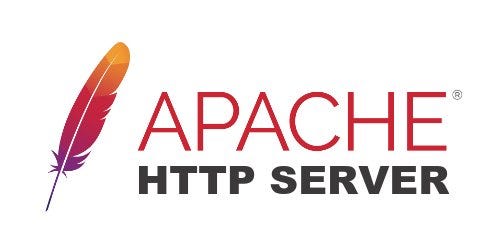Cheat Sheet #day3 - Apache Web Server
 Cloud Tuned
Cloud Tuned
Apache Web Server Cheat Sheet
Basic Commands
Start Apache:
sudo systemctl start apache2 # Debian/Ubuntu sudo systemctl start httpd # CentOS/RHELStop Apache:
sudo systemctl stop apache2 # Debian/Ubuntu sudo systemctl stop httpd # CentOS/RHELRestart Apache:
sudo systemctl restart apache2 # Debian/Ubuntu sudo systemctl restart httpd # CentOS/RHELReload Configuration:
sudo systemctl reload apache2 # Debian/Ubuntu sudo systemctl reload httpd # CentOS/RHELEnable Apache on Boot:
sudo systemctl enable apache2 # Debian/Ubuntu sudo systemctl enable httpd # CentOS/RHELDisable Apache on Boot:
sudo systemctl disable apache2 # Debian/Ubuntu sudo systemctl disable httpd # CentOS/RHEL
Configuration Files
Main Configuration File:
/etc/apache2/apache2.conf # Debian/Ubuntu /etc/httpd/conf/httpd.conf # CentOS/RHELVirtual Hosts Configuration:
/etc/apache2/sites-available/ # Debian/Ubuntu /etc/httpd/conf.d/ # CentOS/RHELEnabled Sites:
/etc/apache2/sites-enabled/ # Debian/UbuntuModules Configuration:
/etc/apache2/mods-available/ # Debian/Ubuntu
/etc/httpd/conf.modules.d/ # CentOS/RHEL
Enabling and Disabling Sites
Enable a Site:
sudo a2ensite example.conf # Debian/UbuntuDisable a Site:
sudo a2dissite example.conf # Debian/UbuntuActivate Changes:
sudo systemctl reload apache2 # Debian/Ubuntu
Enabling and Disabling Modules
Enable a Module:
sudo a2enmod module_name # Debian/UbuntuDisable a Module:
sudo a2dismod module_name # Debian/UbuntuActivate Changes:
sudo systemctl restart apache2 # Debian/Ubuntu
Common Directives
DocumentRoot: Specifies the directory out of which Apache will serve files.
DocumentRoot /var/www/htmlServerName: Sets the hostname and port that the server uses to identify itself.
ServerName www.example.comDirectory: Controls the settings for a specific directory.
<Directory /var/www/html> Options Indexes FollowSymLinks AllowOverride None Require all granted </Directory>Listen: Specifies the port that Apache will listen on.
Listen 80ErrorLog: Sets the name of the file to which the server will log any errors it encounters.
ErrorLog ${APACHE_LOG_DIR}/error.logCustomLog: Sets the filename and format of log files.
CustomLog ${APACHE_LOG_DIR}/access.log combined
SSL Configuration
Enable SSL Module:
sudo a2enmod ssl # Debian/UbuntuDefault SSL Configuration File:
/etc/apache2/sites-available/default-ssl.conf # Debian/Ubuntu /etc/httpd/conf.d/ssl.conf # CentOS/RHELCommon SSL Directives:
SSLEngine on SSLCertificateFile /etc/ssl/certs/your_domain.crt SSLCertificateKeyFile /etc/ssl/private/your_domain.key SSLCertificateChainFile /etc/ssl/certs/chain.crt
Access Control
Require Directive:
<Directory /var/www/html> Require all granted </Directory>Allow/Deny Directives:
<Directory /var/www/html> Order allow,deny Allow from all </Directory>IP-based Access Control:
<Directory /var/www/html> Require ip 192.168.1.0/24 Require ip 10.0.0.0/16 </Directory>
Useful Commands and Tools
Test Configuration:
sudo apachectl configtest # Debian/Ubuntu sudo httpd -t # CentOS/RHELCheck Apache Status:
sudo systemctl status apache2 # Debian/Ubuntu sudo systemctl status httpd # CentOS/RHELLog Files Location:
/var/log/apache2/ # Debian/Ubuntu /var/log/httpd/ # CentOS/RHEL
This cheat sheet provides a quick reference to the most commonly used Apache web server commands and configurations, helping you efficiently manage your server.
Subscribe to my newsletter
Read articles from Cloud Tuned directly inside your inbox. Subscribe to the newsletter, and don't miss out.
Written by
